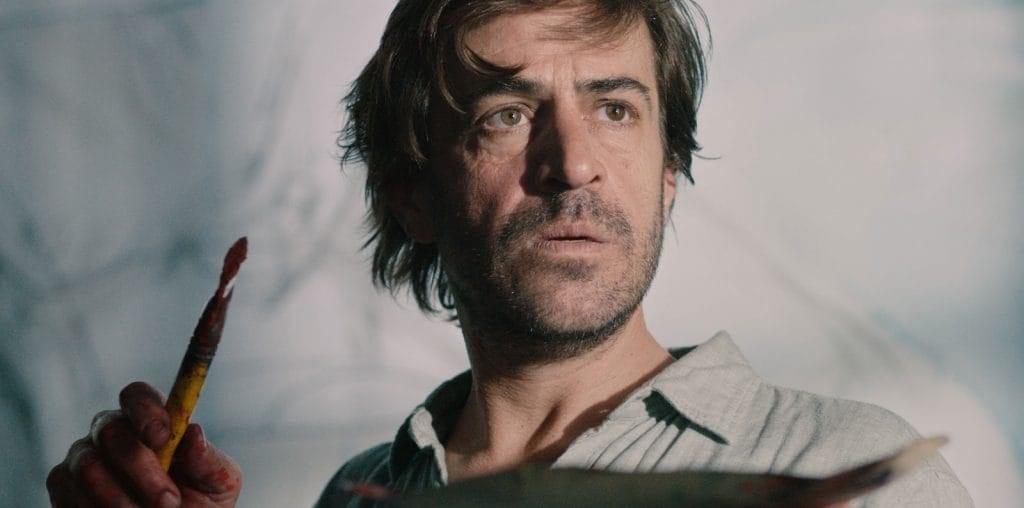
The gods had condemned Sisyphus to ceaselessly rolling a rock to the top of a mountain, whence the stone would fall back of its own weight. They had thought with some reason that there is no more dreadful punishment than futile and hopeless labour.
– Albert Camus, “The Myth of Sisyphus”
Life can often seem absurd. Meaningless, even. The rituals and routines that define our existence can become almost too much to bear, as we ramble on from one day to the next. What’s the point of it all, we ask ourselves, struggling to make sense of life, the world, and everything. Before directing Manic, the sober new film about life in a juvenile mental hospital, Jordan Melamed wrestled with this existentialist conflict.
“I was in the pit,” he recalls of his days as a commodities trader, buying and selling on the crowded floors of Chicago’s cutthroat Stock Exchange. “The animalism of the trading world is remarkably similar to that of the film business. However, it’s in your face in the pits, and more hidden in the movie industry.”
Currently, Melamed is facing a different type of absurdity. Cooped up in a Seattle hotel room, he’s fielding a frantic, nonstop barrage of press questions. It’s the filmmaking equivalent to ol’ Sisyphus and his eternal rock-pushing routine,
but Melamed has chosen to enjoy the redundant rhythms that come with publicizing his movie. His young star, Joseph Gordon-Levitt, is also along for the ride. “I haven’t been in Seattle for five years,” the actor announces, glad to be in the stomping grounds once frequented by Nirvana, his favorite band. “I went to Pike Street Market yesterday.”
In Manic, Gordon-Levitt plays Lyle, a volatile adolescent whose schoolyard fighting lands him behind the locked fences of Northwoods Mental Institution. While receiving therapy for anger management issues, Lyle joins a sullen stew of troubled teens. Tracey (Zooey Deschanel, the older sister from Almost Famous) is a fair-skinned ghost of a girl tormented by unfriendly nocturnal visions, while Sara (Sara Rivas, “Crash”) dresses in Goth garb and oozes rebellion. Michael (Eldon Henson, “The Mighty”) is a doughy, blonde bully who invites violence with each crass insult he hurls, and Chad (Michael Bacall, who also co-wrote Manic’s gutsy screenplay) is a melodramatic manic-depressive with an artist’s sensitive heart. Meanwhile, there’s tentative, frail Kenny (Cody Lightning), whose near-comatose flatness is borne of an abusive past too horrible to speak of.
This nest of broken kids is nurtured by Dave (Don Cheadle), a Northwoods psychiatrist who facilitates grueling group therapy sessions in an effort to prepare his patients for community living.
And while Dave has a life on the outside, Cheadle plays this pressured mental health professional as a man with his own boulder to push. Looking into the dead eyes of Northwoods’ young residents, many of whom have endured abuse, neglect, and psychosis, Dave wrestles with his own vision of the world’s absurdity.
“Life is a struggle,” Dave asks his group with harsh, point-blank bluntness. “Can you handle it?” Cheadle’s shrink poses the question as a dare, challenging his group to grasp at what makes life meaningful and run with it.
The same challenge to find truth and meaning from life is what led Melamed to abandon trading and pick up a camera. Before graduating from the American Film Institute in 1997, Melamed used the school as a vehicle for directing “A Corner in Gold”. “It tells the story of a commodities trader who is literally trying to corner the gold market,” Melamed explains. “He learns the hard way that sometimes it’s not possible to follow in a father’s footsteps, as he is trying to do.”
The short film won Melamed a student Emmy at AFI, and it was aired on numerous cable stations before attracting the attention of studio talent scouts. When asked if the tale is autobiographical, the director chuckles. “Well, let me just say this. I think that in making a film, you have to identify very strongly with its characters in order to make it feel alive.”
Melamed’s fierce connection to characters is what attracted him to Manic’s original script, penned by Blayne Weaver and Michael Bacall. A child actor who had appeared in “Free Willy”, “This Boys Life”, and the “A-Team” television series, Bacall’s second screenplay (his first was for the film Bookies) conveyed an emotional truth that resonated with Melamed. After the two talents met in 1998, they immediately noted the story’s parallels with Albert Camus’ essay, “The Myth of Sisyphus.”
“All of the characters in Manic are trying to decide whether life is just this pointless charade – pushing a rock up a mountain, only to see it rollback down – or is there meaning in it all?”
Get the rest of the interview in part two of UPS AND DOWNS: JORDAN MELAMED AND JOSEPH GORDON-LEVITT DISCUSS “MANIC”>>>
